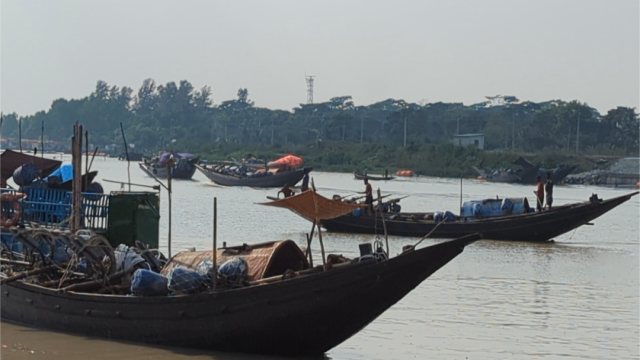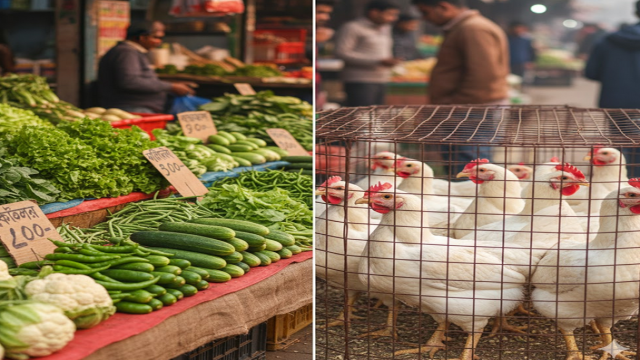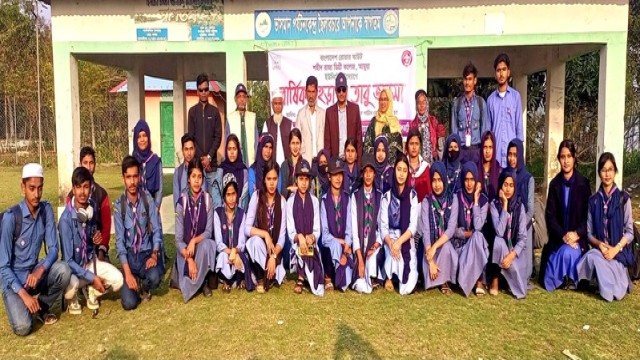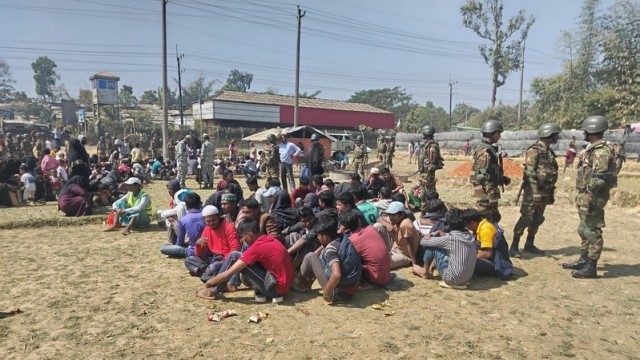Mongla, Oct 24 (V7N) — The dried fish season is about to begin on Dublar Char, along the Bay of Bengal coast near the Sundarbans. Hundreds of fishing trawlers have gathered in the rivers around Mongla, preparing to set sail for the sea at midnight on Saturday after obtaining passes and permits from the Forest Department.
According to Md. Rezaul Karim Chowdhury, Divisional Forest Officer of the Sundarbans East Forest Division, the dried fish season officially begins on October 26 and will continue until February 28 next year. During this four-month period, fishermen will stay on several island villages — Alorkol, Officekella, Narikelbariya, and Shelar Char. Permission has been granted for the construction of 900 temporary shelters for fishermen and 80 shops, including grocery stores, oil depots, pharmacies, barber shops, and small eateries. Additionally, 100 fish trading depots have been approved to facilitate buying and selling activities.
Around 10,000 fishermen and fish traders are expected to gather in these coastal areas for the season. They will build temporary houses, fish-drying platforms (locally known as chatal), jetties, and small piers for unloading fish from trawlers. However, the Forest Department has strictly prohibited the cutting or use of any trees or plants from the Sundarbans. Anyone found violating these rules or causing environmental damage will face legal consequences. To comply, fishermen are bringing along bamboo, fencing materials, and other necessary supplies for building temporary structures.
Rafiqul Islam, a fishing merchant from Paikgacha in Khulna, said, “Since we are not allowed to use forest trees, we are taking all the materials — bamboo, nets, ropes, and fencing — with us. We will not harm the forest in any way.”
Mustafa Sana, a fisherman from Ashashuni in Satkhira, explained the financial challenge of joining the season: “It takes 2 to 2.5 million taka to prepare a full trawler for Dublar Char. We have to borrow money to buy nets, boat parts, and other materials. If the weather stays calm, we can recover our costs, but if storms come, we face losses.”
Kalam Sheikh, a fishing merchant from Rampal, Bagerhat, expressed growing concern about piracy. “For a few years, the sea was free from pirates, but now they are returning. Last year, my fishermen were held hostage, and I had to pay nearly Tk 2,75,000 in ransom. Our only fear is pirates. We want strict monitoring from the authorities so we can fish safely.”
Fishermen also face natural challenges during this season, which coincides with storms and tidal surges. “We often have to fight cyclones and heavy rain,” said Kalam Bepari and Latif Howladar, fishermen from Mongla. “Storms sometimes sink trawlers, and rain can spoil the drying fish. It’s a struggle for survival against nature.”
Forest Officer Rezaul Karim Chowdhury added that the Forest Department earned around 60 million taka in revenue from last year’s dried fish season. “If the weather remains favorable, we expect to earn 70 to 80 million taka this year,” he said, adding that the Coast Guard will also be deployed alongside forest officials to ensure the safety and security of fishermen in the area.
The Dublar Char dried fish season, known locally as shutki mouzum, remains one of the most vital and traditional sources of livelihood for thousands of coastal families in southern Bangladesh — blending economic hope with the enduring challenges of the sea.
END/AHS/SMA/






























Comment: